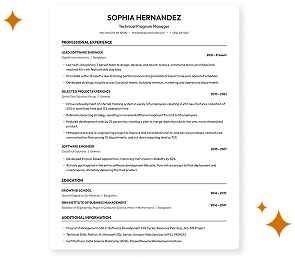Table of Contents
- Introduction
- First Things First: Are You Genuinely Ready?
- Setting the Stage: Your Prep Work is Key
- Timing Your Ask: It’s (Almost) Everything
- The Conversation: Making Your Case with Confidence
- Talking Terms: If a "Yes" is on the Horizon
- What If It's a "No" (or a "Not Right Now")?
- Taking Control of Your Career Climb
Stepping up to ask for a promotion – it’s a big deal, isn’t it? It’s that moment where your ambition meets a touch of nerves. You’ve been grinding, leveling up your skills, and you just know you’re ready for more. More responsibility, fresh challenges, and yeah, the recognition that comes with it. But how do you actually make that happen?
Here’s the thing: asking for a promotion is less about just wanting it and more about making a rock-solid case for why you’ve earned it and why the company needs you in that next role. Think of this as your roadmap – packed with practical advice to help you prep, navigate that crucial chat, and confidently go after the promotion you deserve.

First Things First: Are You Genuinely Ready?
Before you even draft that email to your manager, let’s get real with a self-check. A promotion isn’t just a pat on the back for good work; it’s the company betting on your future. So, dig deep:
Have you truly nailed your current role? Are you consistently hitting it out of the park, maybe even going above and beyond what’s expected? You’ve got to own your current space before you can expand.
Are you already unofficially doing some of the next-level stuff? Often, the clearest sign you’re ready is when you’re proactively tackling tasks that stretch beyond your official job description. That screams initiative.
Do you really get what the new role involves? It’s not just a title change; it’s different work, new skills. Do your homework on what that step up actually means day-to-day.
What’s your highlight reel of value-adds? We’re talking concrete results: projects you spearheaded, efficiencies you created, money you saved or made, tough problems you cracked.
Remember, promotions are usually tied to performance and impact, not just how long you’ve warmed a chair. 1 Time in the company helps, sure, but it’s what you do with that time that counts.
Setting the Stage: Your Prep Work is Key
Alright, you’ve looked in the mirror and you’re ready. Now, it’s time to build a case so compelling, they can’t ignore it. This isn’t about winging it; it’s about strategic preparation.
Here’s your game plan:
Become a Wins Detective (and Quantify Everything!): This is your evidence locker. Don’t just say you did well; show it with numbers.
Instead of: “Made the team more efficient.”
Try: “Rolled out a new workflow that slashed project completion time by 15%, saving us roughly X hours each week.”
Pro tip: Keep a running “brag sheet” or “proof of performance” doc. Seriously, a simple document tracking your value-adds can be gold.
Deep Dive into the Target Role:
Get the Nitty-Gritty: What are the daily tasks? What skills are absolute must-haves? Chat with folks in similar roles, dissect job descriptions (even from other companies for a wider view), and tap into industry insights.
See the Big Picture: How does this role help the team and the company hit their big goals?
Know Your Company’s Landscape:
The Unwritten Rules: How do promotions and pay bumps usually work where you are? If you can, discreetly find out what typical salary increases for internal promotions look like.
Company Vibe & Goals: Frame your pitch around how your promotion helps the company win, especially with what they’re focused on right now.
Nail Your Value Proposition: This is the heart of your pitch. Why you? Why this role? Why now? How will you specifically make things better for the company if you get this promotion? Think about the problems you’re uniquely positioned to solve. Your employer cares about results, so make that clear.
Honest About Growth Areas: Nobody’s perfect. If there are skills you’re still developing for the new role, own it. Better yet, have a plan for how you’ll get up to speed, like a course you’re eyeing or a project you want to tackle.
Fantastic performance is your ticket to the game, but smart timing for your promotion request can really up your odds.
Think about these windows of opportunity:
Performance Review Season: These are natural checkpoints. Managers are often in a promotion mindset during annual or semi-annual reviews, making it a good time to talk about your future.
Post-Big Win: Just crushed a major project or hit a huge milestone? Your value is shining brightest right then.
Opportunity Knocks: If that role you’ve been eyeing opens up, or if there’s a clear gap in the team that you’re perfect to fill, don’t wait.
Company Health Check: Generally, it’s smoother sailing to ask when the company is doing well and looking to grow.
Time in Grade (with a caveat): While it’s less about clock-watching and more about impact, most managers like to see you’ve mastered your current role, which often takes at least six months to a year. But if you’re a rockstar performer, that timeline can be flexible.
A good strategy? Start planting seeds with your boss 3-6 months before you plan to formally ask. Chat about their expectations for your current role and what hitting the next level would look like in their eyes.
The Conversation: Making Your Case with Confidence
Prep done, timing looking good – now for the actual conversation.
Book a Proper Meeting: This isn’t a casual drop-by. Ask for dedicated time to discuss your career development and future with the company. This gives your manager a heads-up to prepare too.
Keep the Email Subject Clear: Something like “Discussion on Career Advancement Opportunities” works well.
Have Your Talking Points Ready: No need for a memorized speech, but a clear outline of what you want to say is essential. This should cover:
Your interest in the new role.
Your key wins and contributions (with those all-important numbers!).
How your skills are a match.
That you understand what the new role demands.
How promoting you benefits everyone.
Navigating the Meeting:
Kick Off with Thanks: Show appreciation for your current role and the growth you’ve experienced. Then, clearly state your goal.
Something like: “Thanks for making the time. I’ve really valued my role as and I’m proud of what I’ve contributed, especially [mention a key achievement]. I’m feeling ready to take on new challenges and I’m very interested in the position.”
Lay Out Your Case: This is where your documented achievements shine. Show them, don’t just tell them, why you’re ready.
Confident, Not Cocky: Present your points with conviction, but keep the tone collaborative and respectful.
Listen Up: This is a dialogue. Pay close attention to your manager’s reactions, questions, and any concerns they raise.
Expect Questions: Be ready to talk about your motivations, how you’d tackle new challenges, and your vision for the role.
Talking Terms: If a “Yes” is on the Horizon
Fantastic! Your manager sees your potential and is open to the promotion. Now, it’s often time to talk specifics, especially salary.
Do Your Salary Homework: Before this meeting, get a sense of the average salary for the new role in your field and city. If you can, find out what typical raises for internal promotions look like at your company.
State Your Expectations (and Justify Them): When salary comes up, confidently present your desired figure. Back it up with your research, the increased scope of the new role, and the value you’re bringing.
For instance: “Based on my contributions, the industry benchmarks for this level of responsibility, and what I understand about our company’s pay structure, I believe a salary of accurately reflects the impact I’ll make and the new responsibilities involved.”
Think Beyond the Base Salary: If the salary offer isn’t quite what you hoped for, or if budgets are tight, don’t forget you can often negotiate other perks:
A one-off bonus
Stock options
More paid time off
A budget for professional development (courses, conferences)
A tweaked title that better reflects the role or positions you for future growth.
Handling Pushback: If your manager mentions budget limits, don’t just fold. Ask clarifying questions and see if there’s wiggle room elsewhere.
Try: “I understand budget constraints can be a factor. Given my track record and the value I’m confident I’ll bring to this expanded role, is there any flexibility, or could we perhaps explore other forms of compensation, like a performance-based bonus or support for further training?”
What If It’s a “No” (or a “Not Right Now”)? Bouncing Back Gracefully
Let’s be honest, not every promotion request gets an immediate green light. If the answer isn’t what you hoped for, how you react says a lot.

Keep it Professional: Disappointment is normal, but resist the urge for a dramatic exit or to mentally check out (the dreaded “quiet quitting”).
Ask for Clear, Actionable Feedback: This is your gold. Understand why.
“What specific skills or achievements would have made me a stronger candidate for this role at this time?”
“Can you give me examples where my performance didn’t quite align with the expectations for the higher-level role?”
“What steps can I take to be in a better position for future promotion opportunities?”
Create a Comeback Plan: Work with your manager. What concrete things do you need to do? Set a timeline and schedule check-ins to track your progress.
Keep Shining and Growing: Use that feedback as your fuel. Tackle new challenges, build those skills (whether it’s soft skills like adaptability or hard skills for your industry), and keep proving your worth. A mentor could be a great ally here.
Time for a Bigger Re-evaluation? If you’ve consistently acted on feedback, shown growth, and opportunities still aren’t materializing, it might be fair to ask yourself if your long-term ambitions align with what your current company can offer.
Taking Control of Your Career Climb
Asking for a promotion is a bold move – a sign you’re actively steering your career. It takes self-awareness, solid prep work, confident communication, and the ability to bounce back. Whether you land that promotion right away or set the stage for a future win, taking this kind of initiative is an accomplishment in itself. With these steps as your guide, you’re well-equipped to navigate the conversation and significantly boost your chances of reaching that next rung on the ladder.







